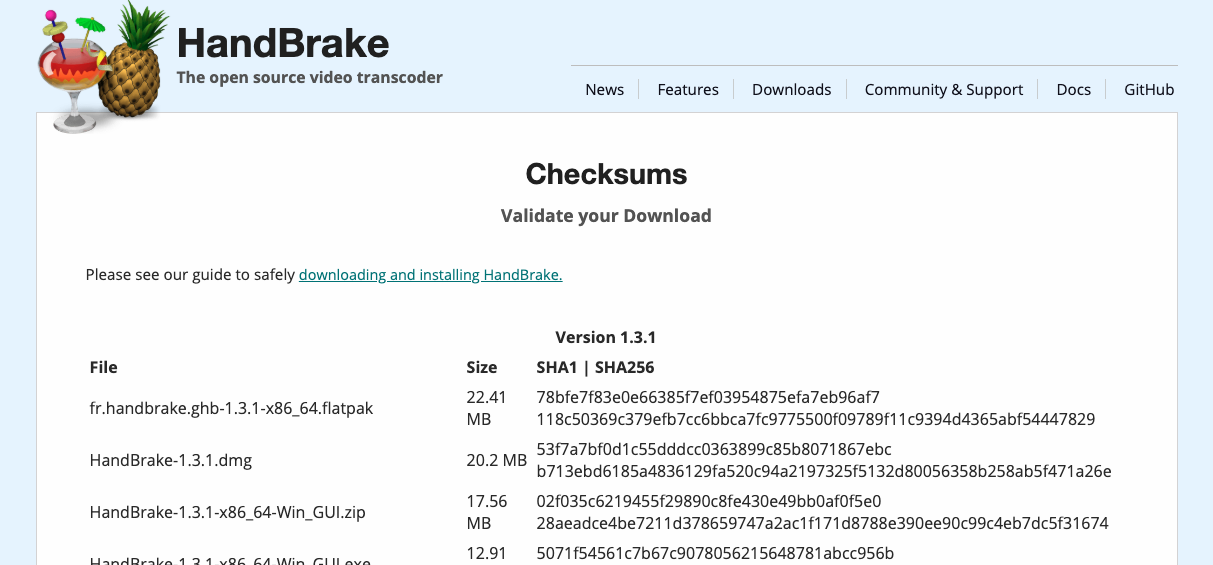Hello, Checksum
Checksums are essentially fingerprints of files.
You can use different hash functions to create them, typically MD5 or SHA.
The same file always creates the same checksum. It’s almost impossible to find another file to create the same checksum, so they’re useful to verify file integrity.

MD5
$ echo "hello" > foo/bar.txt
$ md5 foo/bar.txt
MD5 (foo/bar.txt) = b1946ac92492d2347c6235b4d2611184
$ : > foo/bar.txt
$ md5 foo/bar.txt
MD5 (foo/bar.txt) = d41d8cd98f00b204e9800998ecf8427e
$ echo "hello" > foo/bar.txt
$ md5 foo/bar.txt
MD5 (foo/bar.txt) = b1946ac92492d2347c6235b4d2611184
SHA
# SHA1
$ echo "hello" > foo/bar.txt
$ shasum foo/bar.txt
f572d396fae9206628714fb2ce00f72e94f2258f foo/bar.txt
$ : > foo/bar.txt
$ shasum foo/bar.txt
da39a3ee5e6b4b0d3255bfef95601890afd80709 foo/bar.txt
$ echo "hello" > foo/bar.txt
$ shasum foo/bar.txt
f572d396fae9206628714fb2ce00f72e94f2258f foo/bar.txt
# SHA256
$ echo "hello" > foo/bar.txt
$ shasum -a 256 foo/bar.txt
5891b5b522d5df086d0ff0b110fbd9d21bb4fc7163af34d08286a2e846f6be03 foo/bar.txt
$ : > foo/bar.txt
$ shasum -a 256 foo/bar.txt
e3b0c44298fc1c149afbf4c8996fb92427ae41e4649b934ca495991b7852b855 foo/bar.txt
$ echo "hello" > foo/bar.txt
$ shasum -a 256 foo/bar.txt
5891b5b522d5df086d0ff0b110fbd9d21bb4fc7163af34d08286a2e846f6be03 foo/bar.txt